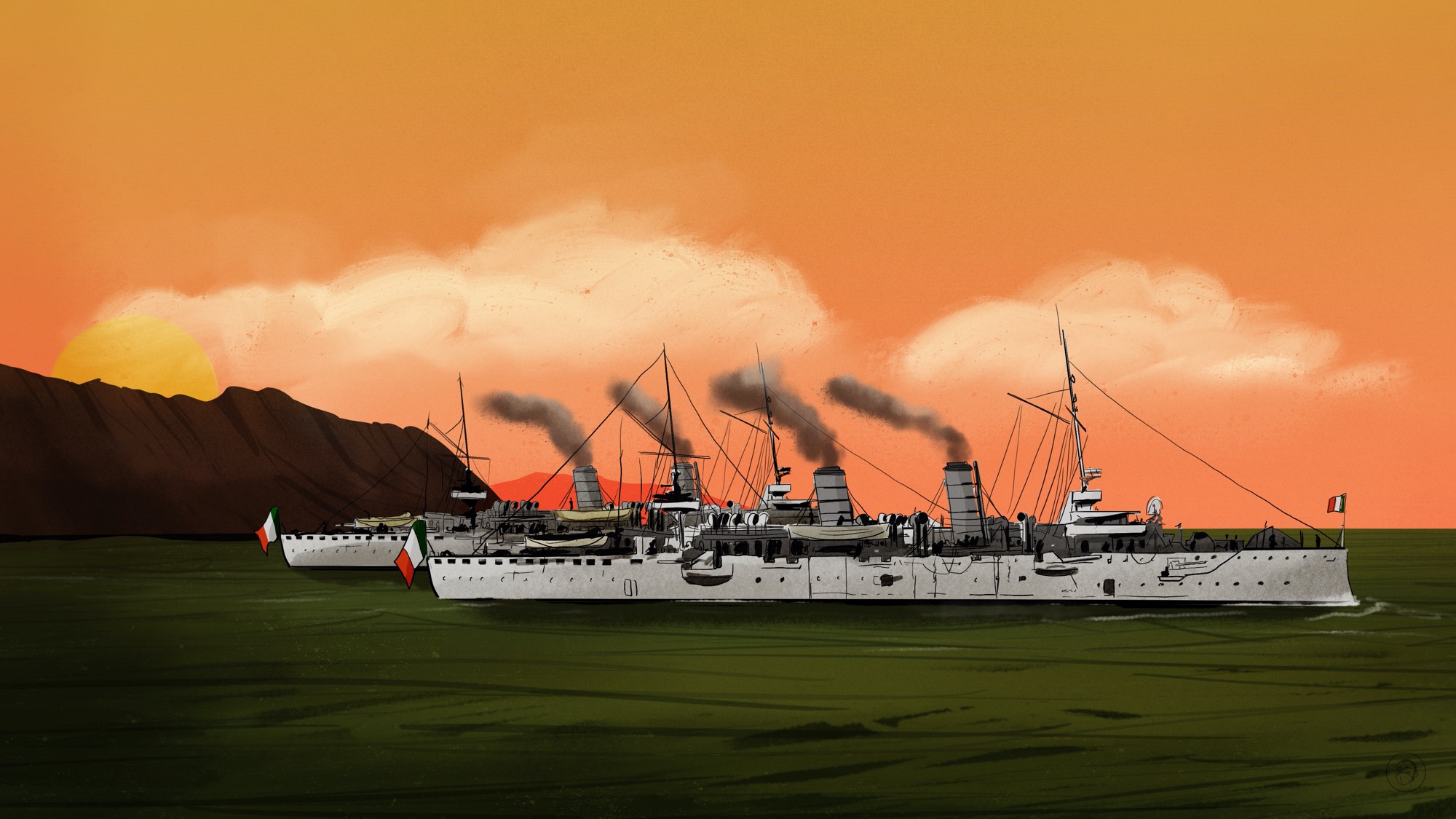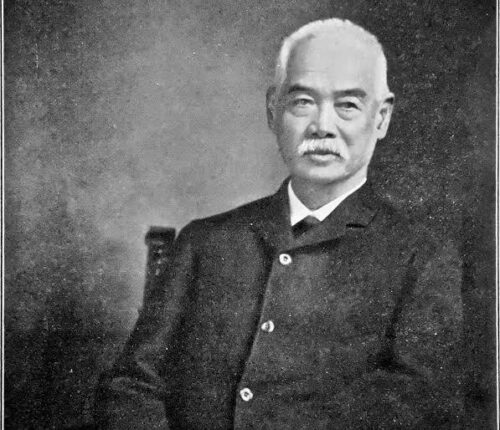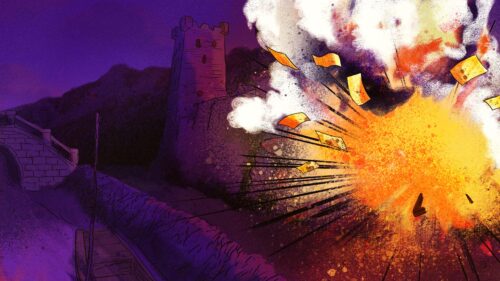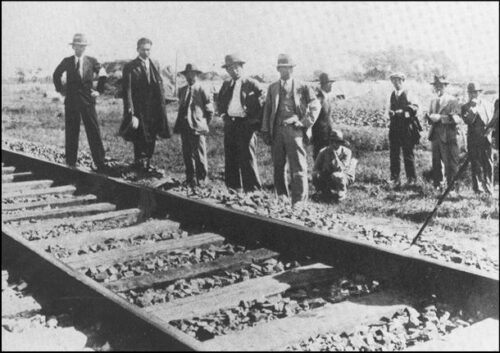Sanmen Bay Affair: The only European power shut out of Qing China
All the great European powers (plus the U.S.) got a slice of China in the late-19th century. All but Italy, that is.

This Week in China’s History: March 1899
Imperialism in late-Qing China has been a common topic in this column. But from Hong Kong to Qingdao to Zhoushan to Guangzhouwan, and from the Opium War to the Arrow war and others, it is the inability of the Qing to stave off foreign — usually European — imperialists that forms a through line in modern China’s history, the backbone of the “century of humiliation” narrative.
Britain takes center stage in most of these events, with France close behind. The United States, Germany, and Japan feature prominently, with the Dutch and Portuguese roles waning over time. But one European state that has so far received little attention is Italy. This week in China’s history, we look back to March 1899, when Italy demanded that it, too, be given colonial concessions by the (what it assumed to be) foundering Qing government.
Italy’s presence in China trailed behind other European states in part because, although Italians like Marco Polo and Matteo Ricci had pride of place among early European visitors to China, unified Italy was a recent addition to the European map. A quarter-century elapsed between the Treaty of Nanjing opening China to trade on European terms and the first Italian diplomatic mission arriving in Shanghai. A Treaty of Friendship and Commerce was signed between the Qing Empire and the Kingdom of Italy in October 1866. The first Qing diplomats to Italy arrived in Florence four years later. For the rest of the 19th century, Italian relations with China were on a back burner, with neither the trade volume nor the antagonism of other European states.
In the 1890s, this began to change. Italy began looking to imperialism — formal and informal — to enhance its economic and political stature abroad. In 1895, Lǐ Hóngzhāng’s 李鸿章 visit to Europe included stops in Belgium, France, Britain, and Russia, but not Italy. Historian Orazio Coco points to Li’s displeasure with Italy’s failure to show “solidarity with the fate of China during the conflict against Japan.”
In 1899, the Qing empire was reeling. The defeat by Japan in 1894-95 — the event that kept Li Hongzhang away from Italy — signaled to many European powers that China was unable to resist foreign aggression, and they responded with bold claims. Britain (Weihaiwei), Russia (Harbin, Lüshun), France (Guangzhouwan), and Germany (Jiaozhou Bay) all made colonial claims in the last five years of the 19th century.
The trend was noticed in Italy as well. In 1898, as Coco writes, “the question of the territorial presence in China was debated in the Italian parliament” as lawmakers looked to Germany’s success in and around Qingdao at gaining mining and trade privileges, and an accompanying gain in international prestige. To these ends, the Italian government dispatched a cruiser — the Marco Polo — to investigate the coastline and find a suitable spot for an Italian concession. The Marco Polo sailed up the Yangtze, calling at Nanjing and Hankou, but settled on Sanmen Bay, on the Zhejiang coast.
Revealingly, the Italians’ first calls were to London, Tokyo, and Berlin: the first two because Britain and Japan had extensive interests in Zhejiang, and the latter because Germany had most recently negotiated with China to secure colonies. Britain being the dominant foreign power in the region was the most important ally for the Italians to secure, but the diplomacy appears muddled. Britain expressed its “friendly support” for the Italian claim for a sphere of influence over all of Zhejiang province, but stopped short of endorsing war. “Her Majesty’s Government,” the British Prime Minister wrote in February 1899, would not “be a party to any arrangement implying the use of force in the event of China’s refusal to accede to the Italian demand” to acquire this territory.
This last point seems to have been missed, or ignored, by the Italians.
On March 1, the Italian ambassador opened negotiations by requesting a concession in Zhejiang province, centered on Sanmen Bay, analogous to what the Germans had received in Shandong. The Qing response was blunt: “Italy was not so important in China to allow it to be given treatment like other Powers.”
The Italian play was to present a fait accompli before “asking” that the Qing cede Sanmen Bay to Italian sovereignty. On March 8, the Marco Polo and another Italian cruiser, the Elba, were ordered to Sanmen Bay, but before they even arrived, according to historian Shirley Ann Smith, the Italian ambassador countermanded the order, after Great Britain reconfirmed that it would not support military action. Smith describes a chaotic interplay of Italian threats, ultimatums, and counteroffers, none of which budged the Qing from their position of no.
In the end, in Smith’s words, “Italy became the first and only Western power at the end of the nineteenth century denied their territorial demands in China.”
Great Britain — the undeniable master in imperial manipulation — was blunt in its reproach of its European counterparts. Smith reports British newspaper accounts condemning “the Italian misstep as a pointless provocation” that “had given the Chinese cause for further xenophobic outbursts in their already confirmed distrust and hatred of white men.” It would have been more effective, the British asserted, to use a pretext — “the assassination of either a diplomat or a missionary” — to support their claim. The resolution of what became known as the “Sanmen Bay Affair” was one of embarrassment and scandal. The Italian government fell, though surely not just because of events in China.
The events faded into obscurity, but their impact may have been significant beyond Italy’s rebuke. Historians, including Coco, suggest that their success at refusing Italian incursions at Sanmen may have led the Qing to overestimate its power relative to Western imperialism, leading the court to ally itself with the Boxer movement a year later, to dire consequence.
This Week in China’s History is a weekly column.





